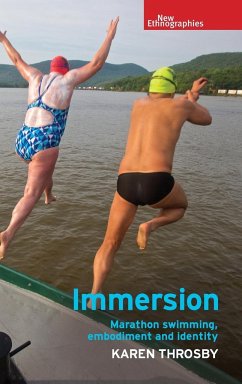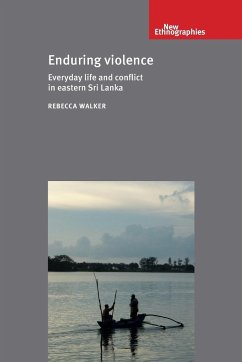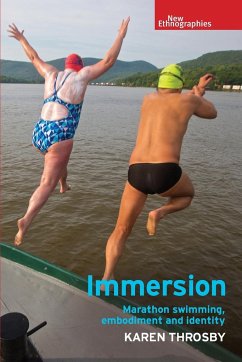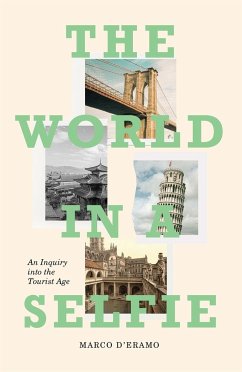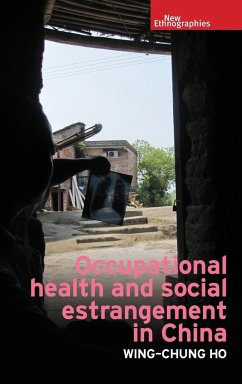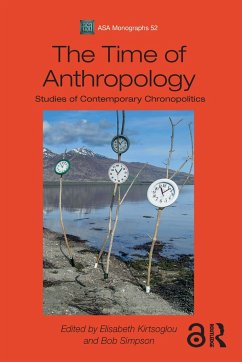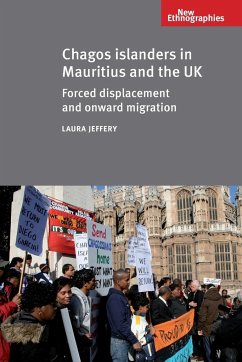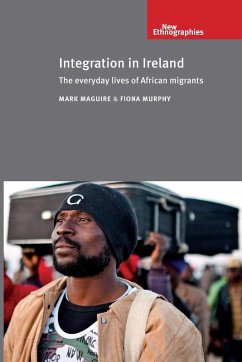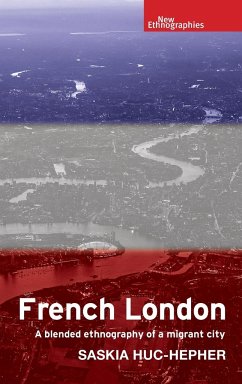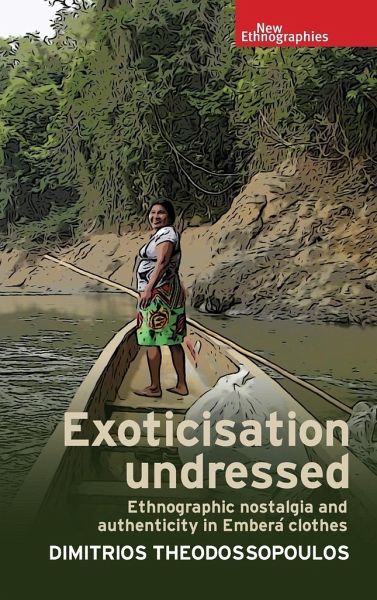
Exoticisation undressed
Ethnographic nostalgia and authenticity in Emberá clothes
Versandkostenfrei!
Versandfertig in 1-2 Wochen
114,99 €
inkl. MwSt.
Weitere Ausgaben:

PAYBACK Punkte
57 °P sammeln!
Exoticisation undressed is an innovative ethnography revealing the many layers through which our understandings of indigenous cultures are filtered, and their inherent power to distort understanding. The study focuses on the clothing practices of the Emberá in Panama, an Amerindian ethnic group who have gained national and international visibility through their engagement with indigenous tourism. The act of gaining visibility while wearing indigenous attire has encouraged a closer identification with an indigenous identity, and a more confident representational awareness among some Emberá co...
Exoticisation undressed is an innovative ethnography revealing the many layers through which our understandings of indigenous cultures are filtered, and their inherent power to distort understanding. The study focuses on the clothing practices of the Emberá in Panama, an Amerindian ethnic group who have gained national and international visibility through their engagement with indigenous tourism. The act of gaining visibility while wearing indigenous attire has encouraged a closer identification with an indigenous identity, and a more confident representational awareness among some Emberá communities. The clothes that the Emberá wear are not simply used to convey, but also become constitutive of, their intended messages. By wearing indigenous-and-modern attire, the Emberá - often seen by outsiders as shadows of a vanishing world - reclaim their place as citizens of a contemporary nation. The analysis presented in the book makes visible 'ethnographic nostalgia', the distorting view that the present seems to emerge through the pages of a previous ethnography, for example, the Emberá carrying out their daily chores dressed as their grandparents. Ethnographic nostalgia distorts social reality by superimposing an interpretation of underlying cultural patterns over intentional or purposeful action. Through reflexive engagement, Exoticisation undressed exposes the workings of ethnographic nostalgia and the Western quest for a singular, primordial authenticity, unravelling instead new layers of complexity that reverse and subvert exoticisation.





